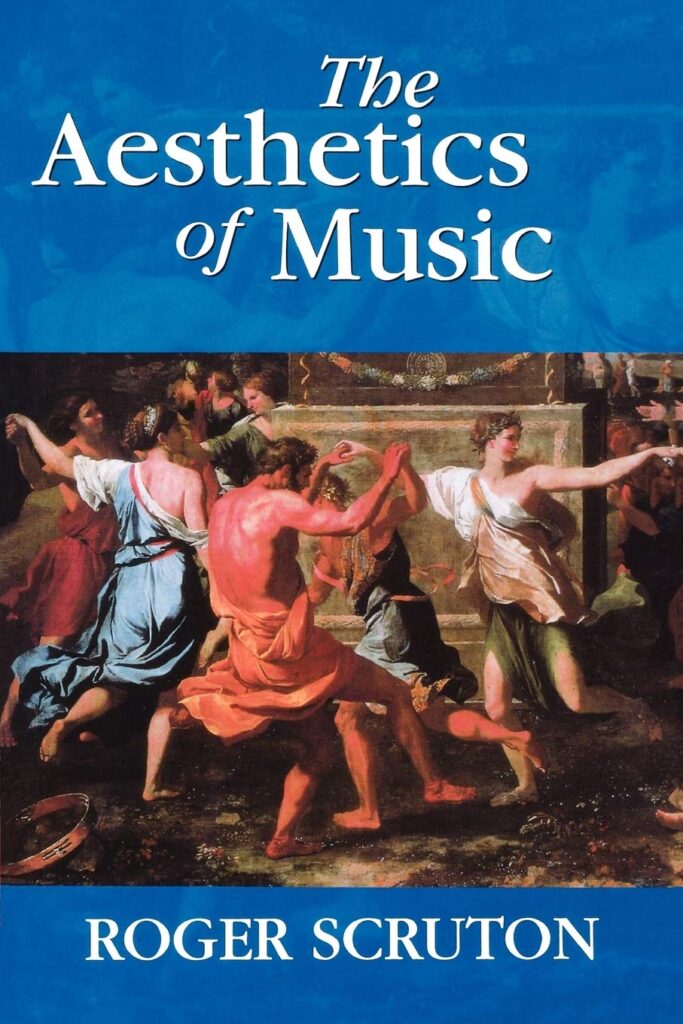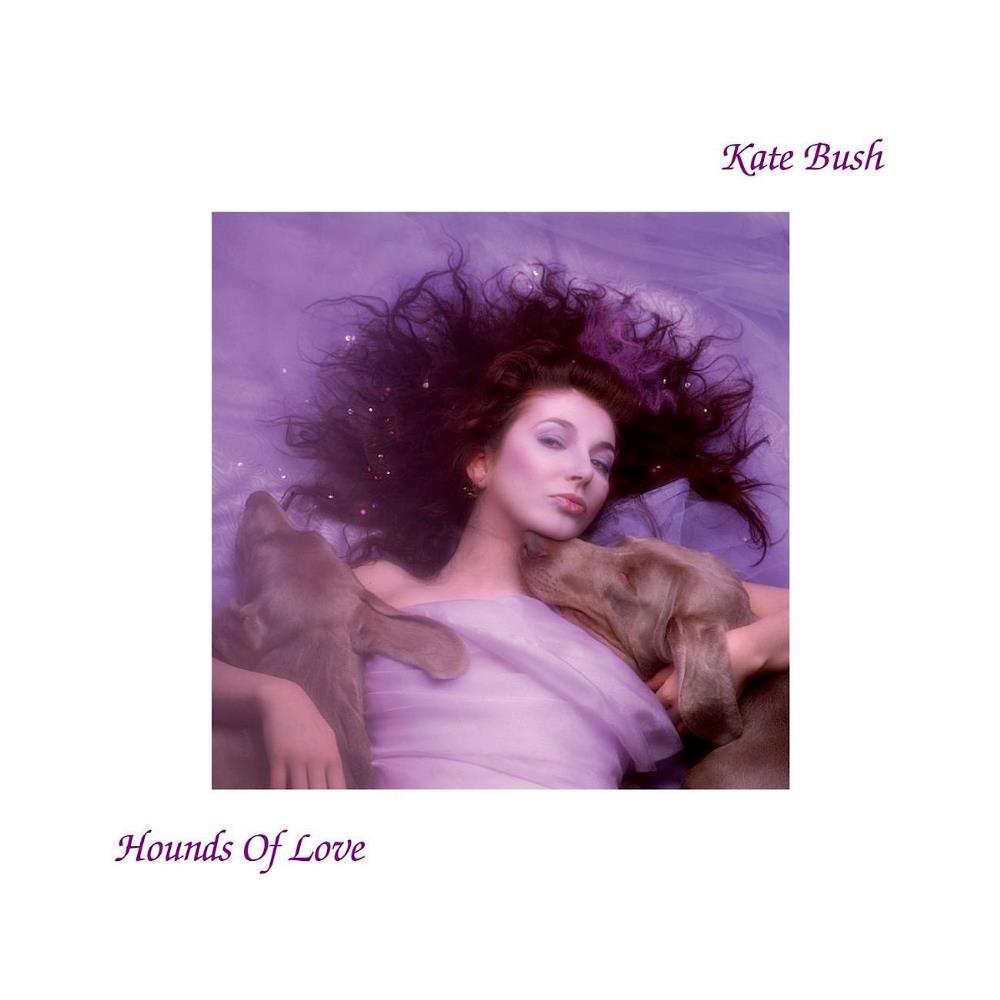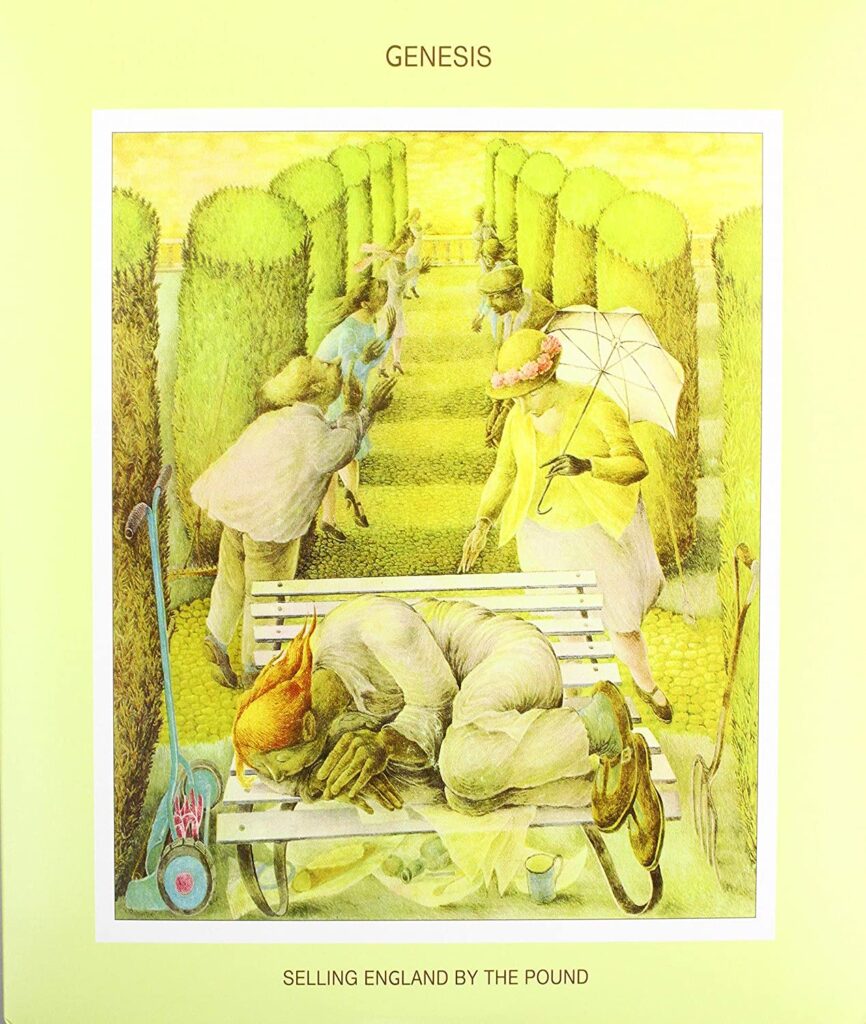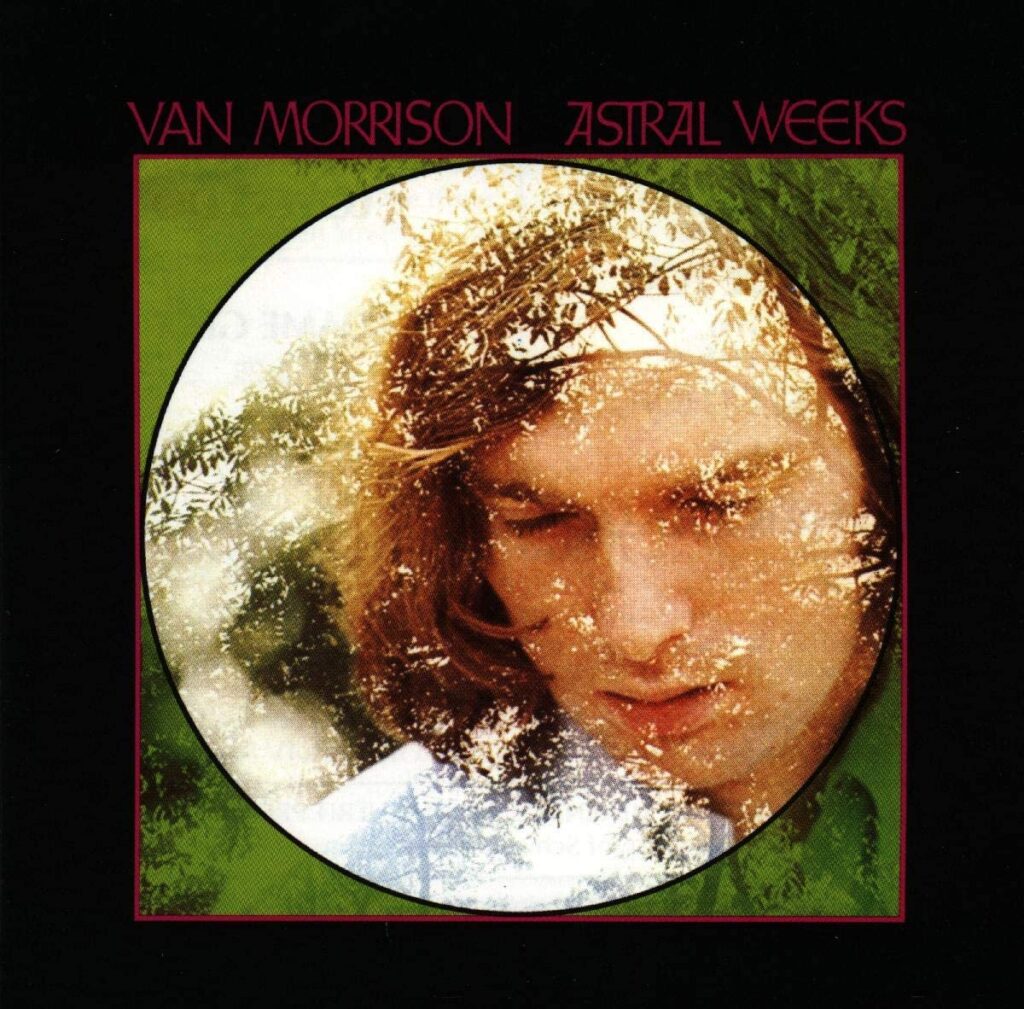In this post I want to analyse some of the aesthetic and philosophical views expressed in Roger Scruton’s excellent book The Aesthetics of Music. There is much in his analysis I agree with but there a several claims he makes that I think are not justified, especially, his criticisms of popular music, and rock in particular that deserves closer scrutiny.

Here is a brief summary of Roger Scruton’s position with regards to the value of music: music is a morally important art form because those who listen to it enter a state of sympathy with the music. Music is at it’s best when in it is profound and original. There is no formula for how this is achieved but there are several qualities that many great works of music share, namely, an attempt to build on past achievements of the western musical tradition both through the use of tonality and a shifting rhythmic metre. Great pieces in the western classical tradition have all of these qualities.
Scruton thinks that rock music is essentially boiled down form of musical expression “The transition from the Viennese waltz, to ballroom dancing, to ragtime, to the Charleston and Tango, to swing, to rock, and to all the successors of rock, tells us much about the moral transformation of modernity 1 .” Scruton believes that is these transitions (or at least the final stages) represent a loosening and lowering of aesthetic and moral standards, with rock music representing a total degeneration. Scruton characterises it as “… the reduction of jazz and blues tradition to a set of repeatable melodic and harmonic formulae, held together by a continuous ‘beat’2.” The examples he points to in support this judgement are Loosing My Religion by REM and Dive by Nirvana.
He also refers to the genre of heavy metal, but no specific musical examples are offered for this genre; perhaps he feels none are needed. Whilst I think the judgements he makes are sound in relation to the particular musical examples he discusses his condemnation of entire genres based on a few examples is unfair. For there are many examples of rock music that are posses the valid musical harmony. For example, I’m Not In Love by 10cc.
Further, his criteria for what counts as good music are too narrow, music having a continuous beat does not exclude it from being a work of value. Many pieces of Irish folk music and jazz are accompanied by a continuous beat, presumably, he would endorse pieces as valid examples of musical expression? However, the fact that he uses scare quotes around the phrase “continuous beat” indicates perhaps that what beat there is in the music has no musical substance. Regardless, the mere labeling as certain formal qualities of music as aesthetically undesirable is intellectually lazy. Surely, what matters is not the presence or absence of a beat, but what is done with it? Take the Les McCann piece Burnin’ Coal or Kashmir by Led Zeppelin to take an example of from Scruton’s reviled genre of rock. Both pieces feature continuous beats but to dismiss their musical value for this reason is to ignore the interest they add the music. What is interesting is how these beats interact with the rest of the music at times joining in with the rhythm of the piece, at other times remaining independent of the other parts.
Further, what makes these beats exciting is just as much due to how the drummer plays the beat as opposed to what they play. Even the simplest and most rudimentary beat can in hands of great drummer become something exciting and musical. One of the problems with the method of musical analysis Scruton uses is that he focuses on for the majority of the book on what can be analysed through the study of a musical score. Using this method of study theoretical allows ideas concerning melody, harmony and rhythm to be explored in great depth. However, this method of analysis leaves out is what the performer can bring to the music and all the less tangible qualities of music such as the feel a player plays a piece with. Ignoring such harder to analyse elements does a great disservice to the richness of music.
In addition, it is how specific musical devices are used not just the mere presence or absence of them that makes a work of music good or bad. It is possible to conceive of a piece of music that contains an abundance of the “shifting accents” in the rhythm that Scruton cherishes that could be dull and tedious. On the other hand, the majority of Scruton’s analysis does rely on discussion specific musical examples of praiseworthy music so his position is protected from this objection. However, with the exception of the REM and Nirvana pieces I mentioned earlier discussion of musical value in relation to particular pieces remains heavily weighted towards works from the classical tradition. This unevenness makes the whole work somewhat biased. One my suspect that we are not reading about a philosophy of music but rather a philosophy of classical music.
In Scruton’s defense, perhaps he felt there were so many examples of bad pop/rock music in existence that he did not feel the need to waste space discussing a multitude of examples. On the other hand, what is true of rock music can also applied to classical music, for the examples he cites from the classical tradition as meritorious are the very best examples of the classical music tradition. Contrastingly, the examples he cites from rock are the very worst the genre has to offer, in other words, his comparison of genres is not fair, he is not comparing like with like.
Leaving our discussion of beat behind turn let us next to an aspect of music that Scruton does not discuss which is the role of composition and improvisation in music making. Typically in classical music the performance of a piece is comprised of the composers score being brought to life by a conductor and an ensemble. The conductor is able bring personal taste to how the piece is to realised by controlling the tempo and phrasing of the ensemble, however, the conductor in most cases is only ever operating within the parameters that are set by the score. Further, the players of piece are even more limited in terms of what they can bring to a performance as they are must be faithful to the score and the conductor’s wishes concerning how the piece is to be interpreted. The exception to these norms are smaller ensembles where there is often no conductor at all and the players can therefore enjoy more freedom or a soloist performing a concerto or some other piece for their instrument. The soloist enjoys the ability to shape the how the music is played more directly through their particular interpretation of a piece and in some cases is able to improvise.
Contrastingly, in the case of rock music improvisation is often a core element of all performances, some bands like Led Zeppelin making large part of their concerts semi-improvised or totally improvised. As usually each band member writes their own parts the band has a whole have a far more personal relationship to the music they perform than is typically the cases in classical music. In addition, each band member has more power to change the direction or interpretation of a performance. This allows the performer more freedom and the ability to make creative choices and take chances in the moment. Whilst in the case of classical music the player’s parts are predetermined as they are specified with the exactitude of a written score. I am not arguing that one approach is better or worse than the other, rather, I am making the point that Scruton’s analysis by ignoring these factors does a great disservice to rock music. In classical music the will of the composer is more dominantly and singularly expressed. In rock music typically all of the players take a more active role in shaping the music both in terms of composing and performance. What the greater presence of improvisation adds to rock music is the feeling that you may never see the same performance twice and that the uniqueness of each rendition of a song is therefore heightened.
In reply to what I have just said Scruton might say that none of this matters as the harmonic and melodic vocabulary of rock music is so impoverished that what improvisation that does occur can only happens within the confines of diminished musical landscape. Whilst this criticism of my argument is valid it is not universally applicable, as it only applies to the instances of rock music where a simple harmonic and melodic structure are employed, not all rock music has these characteristics. My feeling of the situation is what rock music may occasionally loose in harmony and melody it gains in rhythmic excitement. The use of percussion in classical music is often very rudimentary and acts as a mere embellishment of rhythms already being played by the rest of of the orchestra. By contrast in “popular” styles of music the drums are central part of the music.
Scruton’s criticism of rock music goes beyond that of the quality of the music itself. He thinks that inferior music also encourages inferior morals:
“Music is a companion, and an object of sympathy. It invites us into its orbit, so as to share in its manners and outlook , and to ‘join in’ a particular form of life. That description is of course metaphorical. But it is a natural record of something that we all know, and of which Plato had an inkling in his impetuous desire to ban from the ideal republic all but the sober and virtuous modes of music 3.” He elaborates this point later on: “If therefore, our response to absolute music is a kind of latent dancing , it is surely unproblematically true that taste in music matters, and that the search for objective musical values is one part of our search for the right way to live4.” Rock music is bad because of mores it encourages those who dance to it to engage in an immoral experience. “Then listen to a track by Nirvana, and imagine the mores of people who dance to that 5.”
The problem with this view is two-fold: firstly, who decides what is “sober and virtuous”? I cannot help but feel there is an element of snobbery hidden in such judgements, that Scruton may view himself superior to “people who dance to that”. Secondly, making the judgements of the music rest on some purpose whether that be idealogical, social or spiritual makes music something subservient to some other purpose. The problem with doing this if we are not careful whilst in this mode of thought we can loose sight of the purely musical aspects of music and instead become more interested in peripheral phenomena. To be fair, as Scruton rightly points out we can only experience music in some concrete social context or other but this does not help us understand music as music. Rather, it helps us understand how music is used rather than what it is. Of course, music originates in specific cultural context but this can change. Great parts of the classical cannon are probably more widely know for their use in advertisements than they as independent pieces of music.
In addition, if we for the sake of argument accept Scruton’s value judgements about rock music there is a logical problem with his analysis throughout The Aesthetics of Music he sets up false dichotomy that one can either enjoy the “noble” musical genres (classical, jazz and folk) or the moral deficient ones (rock, metal etc). Is not possible for one to enjoy both? Would the occasional indulgence in something less sophisticated be morally harmful? I am not certain what Scruton would say in response to such a question but surely the idea that only on group of genres can be appreciated by single person is a narrow approach to a more complex issue. In different moods a person might want to experience music of different types. For example, I might be in a certain mood and the idea of hearing music making that is of a less controlled nature (by the will of the composer and conductor) might feel liberating. Of course, this is possible without stepping outside of the genres Scruton sanctions, but I think my point still stands.
Does the type of music one enjoys define you as a person? Is it not more reasonable to suggest that the type of music one enjoys can be an expression of the mood or from of life a person has chosen to inhabit? Clearly, if someone exclusively listens to one genre or type of music this probably tells us something about them but what exactly it does is a more complicated question than Scruton believes. There are plenty of snobs who enjoy classical music, however, clearly listening to classical music does not make you a snob. Hitler and Stalin were both fans of classical music, the ennobling effects of the genre clearly did not work on them. Similarly, there are plenty of boring average people who are into heavy metal and every other conceivable kind of musical genre. What affect listening to a specific type of music can have on a person is far from obvious for the extent music has an effect on a person is in part due to how they participate in it and their attitudes to art and life in general.
For example, someone who does not take art or music very seriously will not be affected by music strongly in any way. Also, someone may engage with music a disinterested observer rather than an enthusiastic and active participant. To get to the heart of the matter let us discuss the ideal case of someone who is an enthusiastic participant and is fully taken by music both when listening at home and at a concert. In the same way the those who practice religion may not apply the practices and beliefs they are taught into their wider life so too a music lover may not take the spiritual experience of music into the rest of their life. Further, even if they do it is tricky sociological question to determine what aspect of their conduct has its genesis in the appreciation of music and what is simply the result of other influences. It a perpetual problem of all social science there are a plethora of variables that influence an individual that cannot be easily isolated.
One of the deficiencies of Scruton’s analysis of the moral effects of music is that he has provided no evidence that fans of Nirvana are morally deficient when compared to those of “virtuous” music. He merely assumes this a priori, this does not prove his judgements are false but rather that he has not provided sufficient evidence for them. Whether fans of some genre or other are better or worse people as result of their musical preferences is surely at least in part an empirical question.
I must now also challenge Scruton’s central idea that the moral influence of all rock music is negative, Scruton’s allegations as I have shown earlier is not take the whole of the genre into account but instead focus on a few cherry picked examples. In one part of The Aesthetics of Music Scruton mentions Schopenhauer’s philosophy of music but quickly dismisses it on technical grounds. Whilst his technical criticisms of his Schopenhauer are valid I feel there is more that can be learnt form Schopenhauer’s philosophy of music.. Schopenhauer’s philosophy of music is that music is a direct expression of undifferentiated The Will (or force) that underpins reality. Further, that whilst a subject is appreciating something beautiful the distinction between subject and object is reduced. When this happens the will (by which Schopenhauer means something like the ego) is silenced and the person caught up in the aesthetic experience is temporarily freed from its incessant demands.
Whatever the metaphysical problems are with this theory of the nature of music has it has the merit of drawing attention to the feeling of transcendence that is an essential to the experience of music. Applying this insight of Schopenhauer’s to Scruton’s theory it is clear that the spiritual aspect of the musical experience Scruton ignores. Further, that when considering the case of the merit of various musical genres we can in light of Schopenhauer’s insight approach the question from a different angle. If different types of music are able to help the listener achieve transcendence does the medium via which this achieved matter? I imagine Scruton would say this matters as the social and cultural context the music is a part of and occurs will still influence the moral outlook of the participants in the musical experience. I think that my earlier conjecture does not prove anything definitively but instead is a useful tool to caution us becoming too negative towards other types of music which we may not like by reminding us to someone else they may have value.
In conclusion, I think the Aesthetics of Music is wonderful and sophisticated analysis of the importance and meaning of music. In an era often characterised by an unthinking cultural relativism Scruton eloquently defends the validity of standards of taste and the importance of music to our moral character. However, his sweeping negative judgements of rock music are not supported with sufficient evidence and what examples he does provide are of very bad music which are not representative of an entire genre. The primary problem with his analysis is when he moves from very carefully justified arguments relating to concrete examples to very general judgements. Also, there is an element of snobbery in his blanket condemnation of large groups of people based on what type of music they enjoy. Such judgements are too easy and all-encompassing. Nonetheless, the criticisms I have voiced do not change my admiration for Scruton as a think nor the excellence of The Aesthetics of Music as a work of philosophy.




